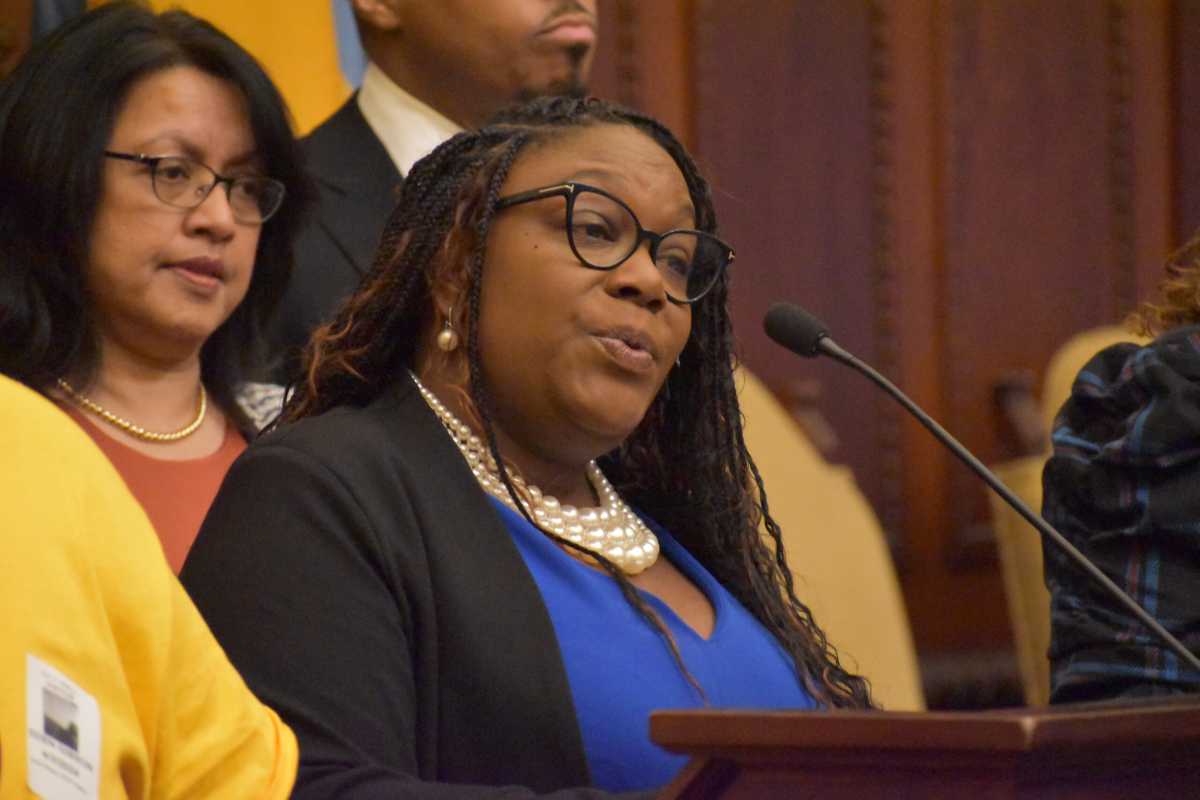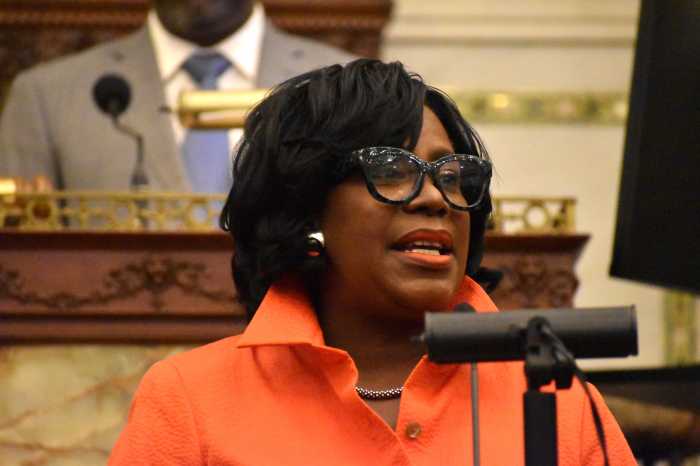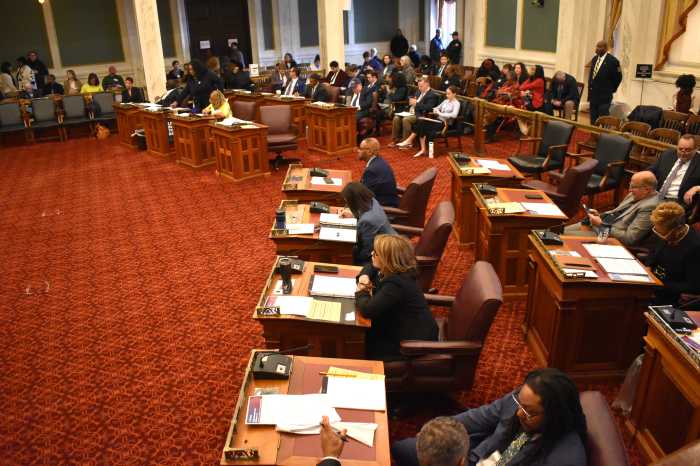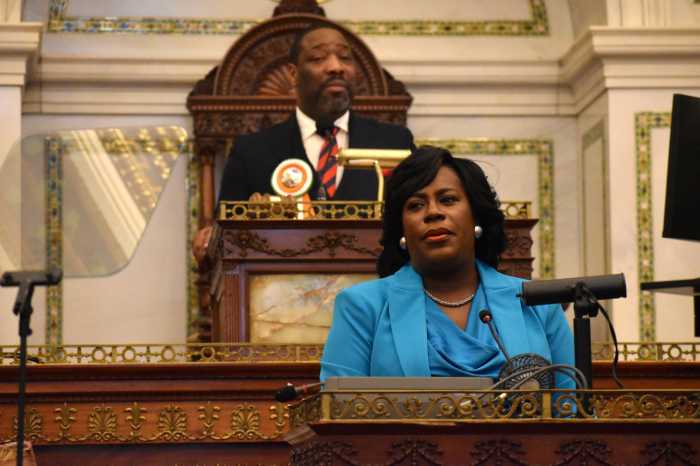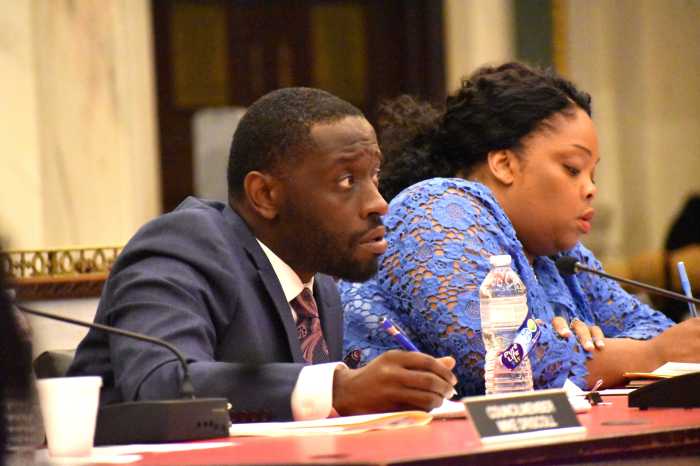City Council is poised to make Philadelphia’s Eviction Diversion Program permanent, after a legislative committee advanced a bill Wednesday.
But funding for a component of the program that provides rental assistance – which landlords say is critical to the initiative’s success – remains up in the air.
EDP was established in response to the coronavirus pandemic, and, since 2022, landlords have been mandated to participate in the program, which attempts to resolve disputes through mediation and housing counseling.
Beginning in January 2023, then Mayor Jim Kenney’s administration added a payment feature, through which money would be directed to landlords to help cover past and future rent for tenants who qualify.
Property owners who accept the payments – known as Targeted Financial Assistance – are not allowed to submit an eviction filing in the court system for at least 60 days after the last month of rent was covered.
Kenney allocated $60 million over two years for TAF. Mayor Cherelle Parker, in her first budget proposal, did not include any funding for the rental assistance.
A group of progressive Council members is advocating for $50 million in TAF funding for the 2025 fiscal year, which begins July 1. Legislative leaders and Parker’s team must reach a budget agreement by the end of next month.
Mark Dodds, interim deputy director of the city’s Division of Housing and Community Development, said during a hearing Wednesday afternoon that the Parker administration supports making EDP permanent.
While the city has enough money to run the EDP for another year, the program will need to be funded through budget negotiations in the future, Dodds told the committee.
EDP has been extended multiple times, but the law establishing it has always incorporated a sunset date. Without new legislation, it would expire at the end of June.
The bill, which is sponsored by 12 Council members, could receive a final vote as soon as May 30. It is expected to pass, unless multiple sponsors change their positions.
However, two landlords testified Wednesday that EDP does not work for them unless TAF payments are available.
“Prior to the addition of the TFA pathway, I thought the Eviction Diversion Program had become the greatest existential threat to privately held affordable housing the city of Philadelphia had ever seen,” said Abraham Silber, founder and owner of Two River Development.
Councilmember Jamie Gauthier responded to Silber and similar sentiments expressed by Nathan Tulchinsky, of Overbrook Capital, by saying, “We hear you both loudly and clearly about TFA, and we’re hoping the powers that be hear as well.”
Not all property managers are thrilled with the current structure of EDP, even with TAF.
Steven Chintaman, vice president of the Pennsylvania Apartment Association, which represents the industry, said the program should only be open to those who meet income and other guidelines for TAF and those being evicted for not paying rent. He also said the organization wants the city to come up with a permanent and sustainable source of funding for EDP.
Over the past year, the number of eviction filings is down 41% in Philadelphia compared to an average year before the pandemic, according to Princeton University’s Eviction Lab.
Landlords and tenants who participated in EDP mediation reached a compromise 70% of the time, and 40% of resolutions were due solely to TFA, Dodds testified.
Several speakers and lawmakers noted that the program has been discussed by elected leaders in Harrisburg and Washington, D.C.
“It elevated Philadelphia as a leader on this issue, and to this day, our city still gets inquiries about how other cities can set up their own eviction diversion program,” Councilmember Kendra Brooks said.
Ebony Tillman, who lives with her 11-year-old daughter, recounted her experience with EDP, describing it as a “weight lifted.” She fell behind on rent late last year; agreed to a payment plan; and her landlord received TAF payment for two months of back rent.
“I am a single mother, and it is a horrible feeling to think that this place where we have shelter and water and our belongings is at risk of being taken away,” Tillman added. “You feel hopeless when you think you might lose your home.”



